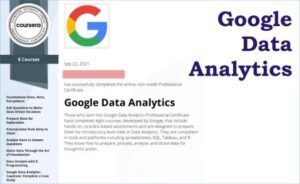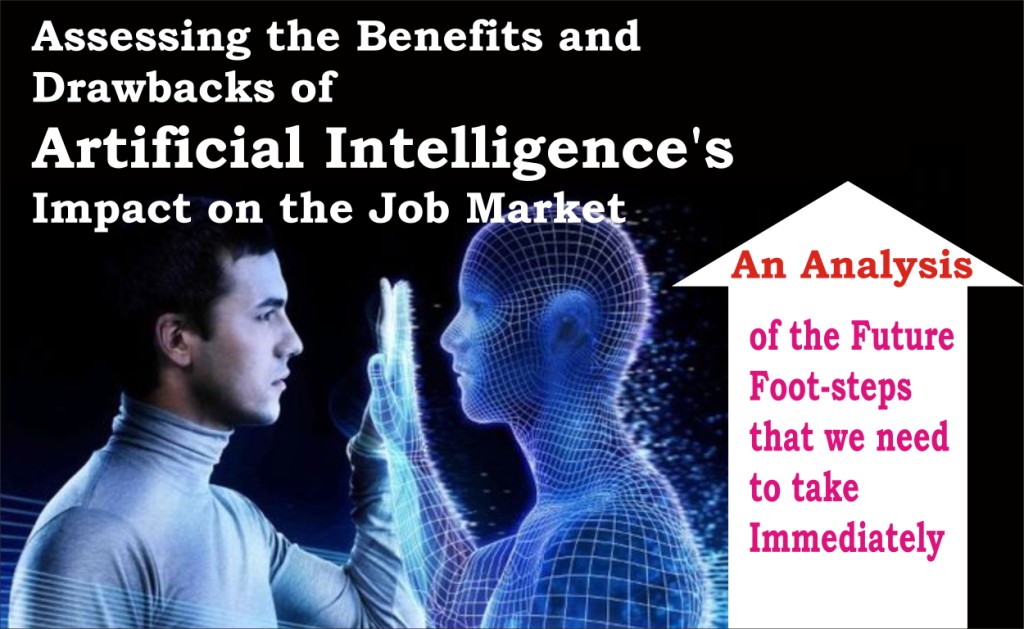Assessing the Benefits and Drawbacks of Artificial Intelligence’s Impact on the Job Market
Introduction:
In recent years, artificial intelligence (AI) has grown quickly, disrupting several industries and altering how people live and work. While AI has many advantages and prospective uses, there are also worries about how technology can affect the labor market. We shall examine both the advantages and disadvantages of AI’s impact on employment in this post.
Positive Job Market Effects of AI
Efficiency and Automation: One of the major benefits of AI is its capacity to automate tedious and repetitive jobs. AI frees up workers to concentrate on more complex duties that call for creativity, critical thinking, and problem-solving abilities by taking over these routine jobs. This may result in higher output, more effectiveness, and more satisfying work environments.
Contrary to popular belief, artificial intelligence (AI) has the potential to lead to the emergence of new occupations and sectors of the economy. AI specialists, data scientists, machine learning engineers, and other specialized workers will be in more demand as AI technology advances. AI-driven developments can also boost economic growth and create new prospects for business owners and entrepreneurs.
Improved Decision Making: AI systems are able to process enormous volumes of data and derive insightful information. This can help with decision-making processes in a variety of industries, such as marketing, finance, and healthcare. Businesses may improve outcomes and competitiveness by using AI algorithms to help them make more informed and precise decisions.
Improved Efficiency and Safety in Risky Environments: AI-powered machines and robots are capable of doing risky activities in sectors like mining, manufacturing, and construction. AI improves job safety by limiting human exposure to hazardous conditions. AI-driven systems can also make the most use of the resources they are given, increasing sustainability and efficiency.
Negative Job Market Effects of AI
Job Replacement: The potential for AI to replace human jobs is one of the main issues raised by the technology. Certain vocations may become obsolete as AI technologies automate tasks that were previously carried out by humans. This could have an especially negative effect on low-skilled individuals in fields that depend largely on manual labor. It is important to remember, though, that while AI may displace some jobs, it can also open up new career paths that call for various skill sets.
The rapid development of AI may lead to a mismatch between the talents that employers are looking for and those that employees already possess. Upskilling and retraining become essential to adjusting to the shifting nature of the labor market. To help workers move into AI-driven industries, businesses, educational institutions, and governments must work together to provide relevant training programs.
AI systems are created using learning algorithms that are based on past data, which raises ethical questions about bias. Biased data can provide discriminatory results and maintain current socioeconomic inequities if it is utilized to train AI algorithms. It will take careful consideration and strict regulation to address these ethical issues and guarantee impartial and fair AI systems.
Effects on mental health and general well-being:
While AI can increase efficiency, it may also raise standards and pressures at work. The demands of the digital age and continual connectedness might lead to higher stress levels and have a detrimental effect on employees’ mental health. For firms, finding a balance between employee well-being and AI-driven efficiency becomes essential.
Need of the Time:
We need to upgrade our skills on urgent grounds. We must start this at our school levels. Even if we don’t have financial resources, we can still learn a lot of things from various sources. Let me tell you the 2 biggest sources. The first one is Google, and the second one is YouTube.

Besides these two, there are many more ways to be explored. Just visit some of the international universities. They also provide recorded courses free of cost. E.g. Harward University.

Conclusion: It is clear that artificial intelligence has the potential to change the job market in both positive and bad ways. While fears about job loss are legitimate, it is crucial to understand the chances and advantages that AI provides. Adopting AI technology necessitates a proactive approach to skill upskilling, ethical reflection, and workplace redesign. By utilizing AI’s benefits and tackling its problems, we may work toward a time when people and robots coexist peacefully, fostering creativity and economic progress.

